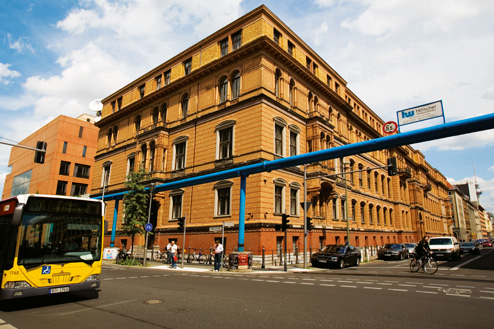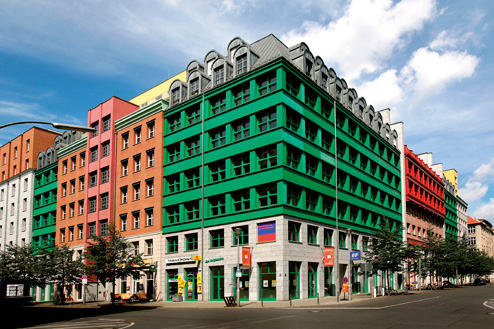Education
Germany’s socialist credo of standing up for the little guy and ensuring everyone is treated equally stops abruptly at its education system. Children enter the first grade in primary school at age 6 and then, after entering the secondary school system at grade 5 (about 10 years old), must choose and pass examinations that will either win them entry to one of the country’s universities or doom them to a life of manual labour. Germans say it helps educators focus on their students, but it’s hard to imagine a 10 year old who already knows what he wants out of life. Two of the country’s three educational systems – Realschule and Hauptschule – then stop at grade 10, when kids are about 16. Most then move onto an internship or some type of vocational training. However, the university track, known as Gymnasium, continues for an additional three years of schooling before pupils go to university.
Still, the country’s broad commitment to social programmes means they fund much of a child’s care and schooling from nursery all the way through university. Indeed, school is mandatory for children between the ages of 6 and 16. The government will even pick up the cost of daycare for kids just a year away from school-age to help them acclimatise. Universities educate children aged 18 and over and charge a €50 per semester administration fee but no tuition.
Germans continually fret about the state of their educational system, but it ranks near the top when compared to other European countries. Because school is mandatory, the city’s education department will get in touch with you if you register a child. If, however, you move in the middle of a school year, you should ask the Einwohnermeldeamt about registering your kids when you go to register your address. In general, your kids will be sent to the nearest school, although a baby boom in parts of the former East Berlin has forced the authorities to spread primary school students around. If your children attend German schools, classes will generally end at about 15:00, meaning you’ll either have to pick them up or arrange for after-school care.
The city also has a handful of English-language schools, some of which are funded by the government and some that are private. The biggest advantage is that most understand the dilemma of two working parents and offer care until early in the evening. Getting into the government-funded schools, which means you won’t have to pay any tuition, can be difficult, but not impossible, but there are waiting lists and special requirements. The city’s private schools, however, would be happy to have your child and your money.
Still, the country’s broad commitment to social programmes means they fund much of a child’s care and schooling from nursery all the way through university. Indeed, school is mandatory for children between the ages of 6 and 16. The government will even pick up the cost of daycare for kids just a year away from school-age to help them acclimatise. Universities educate children aged 18 and over and charge a €50 per semester administration fee but no tuition.
Germans continually fret about the state of their educational system, but it ranks near the top when compared to other European countries. Because school is mandatory, the city’s education department will get in touch with you if you register a child. If, however, you move in the middle of a school year, you should ask the Einwohnermeldeamt about registering your kids when you go to register your address. In general, your kids will be sent to the nearest school, although a baby boom in parts of the former East Berlin has forced the authorities to spread primary school students around. If your children attend German schools, classes will generally end at about 15:00, meaning you’ll either have to pick them up or arrange for after-school care.
The city also has a handful of English-language schools, some of which are funded by the government and some that are private. The biggest advantage is that most understand the dilemma of two working parents and offer care until early in the evening. Getting into the government-funded schools, which means you won’t have to pay any tuition, can be difficult, but not impossible, but there are waiting lists and special requirements. The city’s private schools, however, would be happy to have your child and your money.













